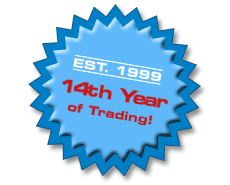
The aptly named "Google one page SEO starter guide".
Click on text or image above for enlargement.
The graphic above was originally a PDF found on the Google help page linked below.
For more of the straight skinny from Google's very own mouth see the best Google information regarding SEO or search engine optimisation including about how to find a reputable SEO (like me) and how to ask the right questions to an SEO agency you are considering to perform SEO on your website.
Graphics above are copyright © Google Inc
Hard web provides SEO services to Gold Coast and other Qld businesses.
SEO is the practice of improving the organic (unpaid) ranking of websites in the search engine's listing pages.
In Australia the focus of SEO is on the biggest search provider which is Google but also to a lesser extent Yahoo and Bing.
Hard Web knows that SEO's clear objective is to improve the organic rankings for your website for the targeted keywords that I will research and decide to be of high volume (lots of people use the keywords) and that are closely aligned with the actual services or products you are selling.
As my SEO customer you must be willing to provide me with quality content to fill specific webpages on your website. This will be done under my guidance but I cannot write your quality content for you.
See below for adapted questionnaire you must answer regarding what is quality content?
I provide SEO for not only new websites but existing websites where I didn't design the initial website.
I have now decided to limit my offer of SEO services to HTML based websites and only two CMS (content management system) based websites, those made with WordPress and Bigcommerce.
The experiences I have had with trying to do SEO on the myriad of other CMS's is that success depends too much on the CMS not on my skills, I also I wasted a lot of time familiarising myself with a CMS which may or may not provide the capability to do effective SEO.
Search engine optimisation (or optimization) is a special area of interest and one where I have had some spectacular results for my clients (even if I do say so myself!).
I specialise in integrating your website into the Google ecosystem which includes installing Google Analytics, registering your website with Google Search Console (formerly webmaster tools) and making sure the Google+ for business page (now updated with a very good "My Business" interface) has accurate information and is being listed favourably.
Note that the Google+ for business page is where your Google maps listing's information is drawn from.
The maps listing info was formerly taken from Google Places, then both Places and G+ and now thankfully it is just Google+ or more properly as of June/July 2014 Google My Business.
David from Hard Web talks about SEO on the Gold Coast to celebate Hard Web's #1 ranking for the search for 'SEO Gold Coast' on 16 Oct 2013
Tip: Videos help rankings, even though this is a not professionally produced (no kidding!), the content is original and it has a text transcript which Google likes very much.
I believe that the only long term SEO strategy that works is by legitimate means or what is called in the trade; white-hat SEO which involves regularly producing fresh, original and what Google calls quality content for your website and it's pages.
In Australia the search engine user base is overwhelmingly dominated by one search engine Google, so I place great importance on following and implementing the clear guidelines set down by Google for correct web design & SEO practices, please see Google's Webmaster Guidelines.
If you wish to further your SEO knowledge you must also read the legendary Google SEO primer called the Search Engine Optimization Starter Guide.
It is a 32 page .PDF first published by Google in Nov 2008 and updated in Sep 2010.
After you have read and absorbed those two sources you will know more about SEO than 99.9% of the world's website owners and about half of the world's SEO experts!
Here is new Google series specifically for beginner web-masters regarding how to get found in the Google search engine and even how to improve your website's position/ranking/listing in Google - gee why didn't they just say how to do SEO? because that's what it is!
Further down on those pages linked above you can see some of Google's tips for experienced webmasters, mainly about Google Search Console (formerly webmaster tools).
FINALLY a great video on that same page about why businesses should get online, it is also in the same series and narrated by Texan Google Ads and Analytics expert Anastasia Holdren whom I have met at a few Google Engage (now called Google Partner) conferences and is very nice.
My advice is to know the difference between on-page SEO and off-page SEO.

Here is a page of SEO infographics
The job of SEO can be divided into two parts called:
On-page SEO
This involves optimizing the actual website and all of it's 'pages' including the page's underlying HTML code and also the text and pictures that make up the website that everyone can see.
Some tips for writing copy for your website, with SEO in mind.
Always start with keyword research which I do via the Google keyword planner tool formerly known as the Google keyword tool and now only available to use from within an Google Ads account but which fortunately you can sign up for at no cost.
If you think that certain words are relevant to the searcher trying to find your product then try to include those words in the text on the webpage.
SEO has become more subtle these days as Google recognises synonyms more effectively and allows a search for something where the text may not necessarily be on the page but where synonyms are on the webpage.
Google hates keyword stuffing so try to deliver what Google wants which is fresh, original, insightful text with no lines or ideas copied from anywhere else unless explicitly attributed.
Write about what you know with relevance to the customers you want to specialise in.
The text should be relevant to the what the user is looking for with no deceptive tricks such as adding words that are not part of the field you are in, just to try and boost rankings.
If someone is searching for something then the searcher in general realises what they are looking for but may not know an exact description so you can exploit the fact that people use different words.
SEO for new business websites.
Maile Ohye from Google advises on how to do SEO if you have a new website (or startup) in a super concise consultation. Full of Juice!
Google also realises that websites may try to optimize for terms they are not actually selling - in order to get traffic - but Google hates that because in it's eyes this is an attempt to outwit the system and unfortunately Google is smarter than us and in the long run this tactic will fail.
Google seeks to deliver relevant websites in answer the user's query.
The list of 10 or so organic results that Google shows on the first page of results after a query are there because of their particular relevancy to the user's search query.
The rewards for playing by the Google rules in the game that has taken over local small business business advertising (from Yellow Pages) are huge.
Achieving highly ranked organic (free) listings for your website are "money in the bank" to your business because of the leads that good rankings generate.
The penalty for failed black hat SEO is eternal damnation in Google's eyes and that place is where we do not want our websites to end up.
Off-page SEO
This is more difficult and involves managing the websites "popularity" and "relevance" which are Googly terms meaning how much other websites "like" the website we are trying to optimize. It boils down to how many other "popular" websites or blogs "link" to or "like" or "plus" our website that we are trying to optimize.
Getting a link (or hyperlink) to your website has certain rules that Google insists we follow, for instance we are not allowed to buy links to increase the website's popularity. This is against Google's guidelines for SEO.
The website has to earn it's popularity!
This reminds me of popularity in the schoolyard - not that easy to attain!
Top

Googlebot doing it's job of finding, copying, sorting and then indexing and ranking websites
Since I gained my Individual Qualification in the Google Analytics application (here is proof of my Analytics IQ qualification here) - I have applied Google Analytics to many websites and it is simply the best tool for analysis of the way visitors get to your website and what they do when they get there.
The hard data of how the potential customer is interacting with your website, which is representing your business online, is an invaluable source of information for how to improve your website in the many ways it can be improved.
I also integrate Google Search Console (formerly webmaster tools) with Google Analytics (GA) which I believe is absolutely essential.
All new websites of mine get the GA, GWT and SEO treatment because I believe that a website is worth next to nothing if people can't easily find it via search and not just for obvious search terms like the business name I mean real traffic generating search phrases.
Matt Cutts (above) is the face of Google SEO.
Matt's actual job title is head of Web Spam at Google.
He is Google's SEO advice guru and in this video he answers a question about the biggest SEO mistakes.
SEO (Search Engine optimisation) is altering a webpages code, content and structure to help a search engine such as Google, to be able to index (rank) the website accurately and hopefully highly against it's competition.
The aim of SEO is to get high rankings for as many targeted keywords as possible.
It is difficult and time consuming but I believe it is the best money a customer of mine can spend with me as my SEO methods have worked consistently for years and are still working well.
I am basically following the guidelines set out by the search engines as well as keeping up to date with what the SEO community is speculating about what changes are occuring in the world of SEO.
For more SEO information up to the expert level see Google employee Matt Cutts blog and also the Google webmaster blog
I also like the SEO section of Site Pro News as well as the killer Vertical Nerve blog.
Below is my modifed excerpt from the Google webmaster central blog dated 6th May 2011 which advised us that when trying to answer the vexed question...
What is quality content?
We must ask ourselves the following rhetorical questions about our webpages.
(Note that the questions below have been slightly modified to make better sense, see link above for original questions)
If you were a new visitor to a page within your website:


